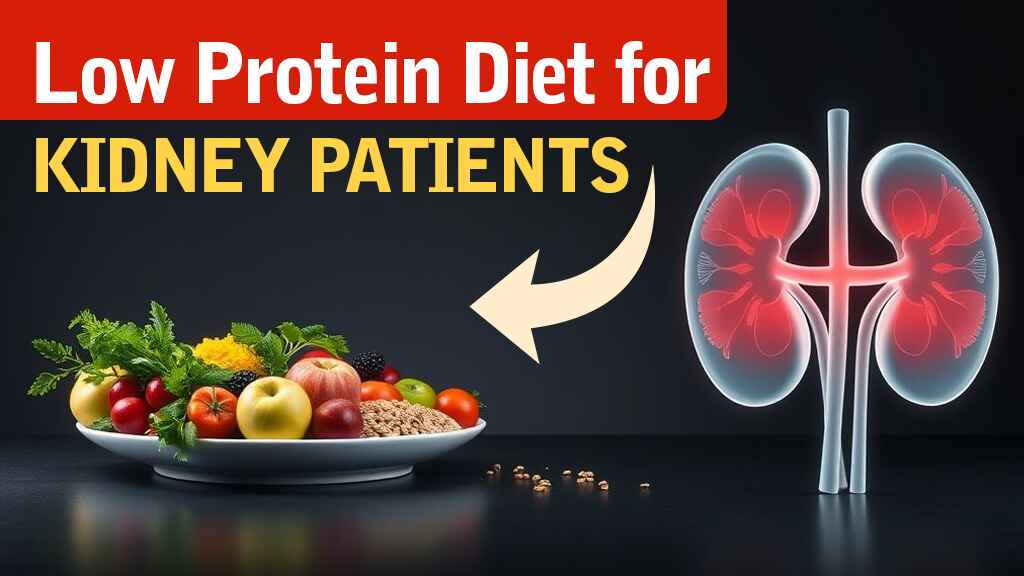
If you possess kidney disease, one of the most crucial aspects (of managing your condition) is your diet. A low-protein diet can (indeed) play a key role in slowing down the progression of kidney disease, particularly for individuals with chronic kidney disease (CKD). By reducing the amount of protein consumed, you can assist in alleviating strain on your kidneys and prevent further damage. In this blog, we will explore why a low-protein diet for kidney patients is advantageous and how to make it work for you.
Our kidneys are responsible for filtering waste products from the blood; protein metabolism generates a significant amount of waste that the kidneys must process. However, when you have kidney disease, your kidneys are less capable of effectively filtering out these waste products. Because of this, by reducing the amount of protein you eat, you can help lessen the burden on your kidneys, granting them a reprieve and slowing down the damage.
For kidney patients (especially those in the early stages of CKD), consuming excessive protein can result in an elevation of waste products (such as urea and creatinine), which can accumulate in the blood and induce feelings of malaise. Kidney treatment in Ayurveda advises the patients to keep a check on protein consumption. A low-protein diet assists in decreasing these waste products; however, it may also enhance kidney function in certain instances.
The amount of protein (that you should consume) on a low-protein diet depends on the stage of your kidney disease and your individual needs. In general, most individuals with kidney disease are advised to limit their protein intake to 0.6 to 0.8 grams (of protein) per kilogram of body weight per day. For example, if you weigh 70 kilograms (approximately 154 pounds), your daily protein intake should be around 42 to 56 grams of protein.
However, this is merely a guideline; your healthcare provider or dietitian will be capable of offering personalized advice based on your kidney function, blood tests and overall health. Although some may perceive these recommendations as rigid, they are essential because individual circumstances vary significantly.
While the goal is to reduce overall protein intake, it’s still important: to obtain high-quality protein from the right sources as some protein-rich foods are better for kidney patients than others. This is true, however, as they are easier for kidneys to process (although) some may argue otherwise.
Adhering to a low-protein diet does not imply one must consume bland or unsatisfying meals. Here are some strategies to assist you in maintaining a balanced (and kidney-friendly) diet:
A low-protein diet is just one aspect of managing kidney disease. In addition to controlling protein intake, here are some other suggestions to protect your kidneys:
Karma Ayurveda specializes in providing natural treatment for renal disorders. The hospital has an expert staff and state-of-the-art facilities so that your treatment is comprehensive and free from any potential side effects.
A low-protein diet can serve as a helpful tool in managing kidney disease and slowing its progression. By reducing the amount of protein you consume, you may lessen the burden on your kidneys and help prevent further damage. With careful planning (and guidance from your healthcare provider or dietitian), you can still enjoy a variety of delicious and nutritious foods while protecting your kidney health. Remember: everyone’s needs are different; however, make sure to discuss any dietary changes with your doctor before making adjustments. They can assist you in creating a diet plan tailored to your specific condition (and nutritional needs).
"Ayurveda is not just a system of medicine; it's a way of life. Connect with us to embrace a lifestyle that nurtures your body, mind, and soul."

Certificate no- AH-2023-0186
JAN 05,2023-JAN 04,2026